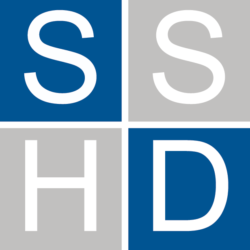Taking closer look at research and experiences of SSHD members
~Researcher’s Window~
This month we are getting better acquainted with the research of Jayanthi Mistry, a professor in the Eliot-Pearson Department of Child Study and Human Development at Tufts University.
- What drew you to do work in human development?
As a high school student I was drawn to literature and literary analysis. Eventually my fascination with character development and story lines in fiction led me to psychology as a field of study. Later as a graduate student, I vividly recall feeling that my own developmental contexts and history were not represented in the mainstream knowledge base of human development. This triggered my interest in learning about cultural perspectives on human development and led to an NIMH post-doctoral fellowship with Barbara Rogoff. Since then, the application of socio-cultural perspectives to understanding children’s development has remained at the center of my scholarship. As a parent raising two children in the U.S., guiding our children as they navigated their multiple worlds and identities precipitated a more specific interest in the development of children from immigrant and culturally diverse backgrounds. At that time, I took advantage of opportunities at Tufts University to work with colleagues across disciplines (e.g., in interdisciplinary programs such as International Relations, Asian American Studies). These were transformative experiences that convinced me of the value of cross-disciplinary dialogue.
- Did you have any mentor or a researcher who had substantial influence in your path or work? Is there a significant moment or story that capsulizes the nature of that influence on your scholarship or professional journey?
Two mentors have had substantial influences on my professional trajectory. Professor T.S. Saraswathi was my MA program advisor and has remained a valued and wise mentor who keeps me grounded in global perspectives on human development. Professor Barbara Rogoff was my mentor for the NIMH Postdoctoral Fellowship and introduced me to sociocultural theory. Barbara’s influence on my scholarship is best reflected in the following story. Once during a discussion of with her team of postdocs, Barbara shared her professional goal. In the mid-1980s when cultural perspectives in human development were as yet nascent, she explained her intention to bring culture to the core of human development.
- You have a range of important work, select 1-2 findings that you feel are key contributions to human development.
At this point in my career I am most committed to interweaving my theoretical and empirical scholarship. Here I mention two recent publications that best represent my theoretical contributions to the field. The first publication is a chapter (Mistry & Dutta, 2015) in the seventh edition of the Handbook of Child Psychology & Developmental Science, in which my colleague and I document the emerging convergence of cultural psychology and developmental science perspectives as both emphasize the mutually constitutive nature of individual development and culture. The second publication (Mistry et al., 2016) presents a conceptual framework that highlights the interrelated nature of developmental contexts, developmental domains, and culturally-situated interpretive processes. This is part of a connected set of papers published as a Special Section on Asian American Children and Youth in Child Development. The conceptualization of culture integrates both the broadly generalizable ideologies and practices shared by groups, as well as, the meaning-making processes through which individuals interpret their environmental contexts as they act in, with and upon their environmental contexts in the developmental process.
- Your one wish for the study of human development. If you had just one wish for the study of human development, what would it be?
My one wish for the study of human development is best presented in Mistry & Dutta (2015). In this chapter we document that discussions of the mutually constitutive nature of individual development and culture were occurring concurrently nearly two decades ago among cultural psychologists (e.g., Cole, 1996; Rogoff, 1990), developmental scientists (e.g., Overton, 1997), and cognitive scientists (e.g., Rowlands, 1999). However, scholars were too often engaged in parallel discussions and not in dialogue across perspectives. The following excerpt from the chapter explains this wish best:
“The convergences we have highlighted in this chapter can pave the way for developing theories of human development that are culturally inclusive and relevant globally. The need for such a global orientation stems from the state of science and technology that situates us in an interconnected world bringing diverse people together on scientific, economic, and social fronts. In this climate of interconnectivity and coexistence of diverse peoples, we call for greater dialogue and discourse as a critical mechanism for the development of culturally inclusive theories and knowledge of human development. We hope that the emerging convergences we have delineated in this chapter will promote the dialogue that can promote integration and synthesis of perspectives.” (p. 401).
The viability of such cross-perspective dialogue has been brought home to me in the recent experience of preparing the Special Section on Asian American Child Development with members of the SRCD Asian Caucus. The opportunity for sustained dialogue and discussion through which we bridged and synthesized our varying theoretical perspectives was most rewarding.
- A mentoring statement or quote you find most meaningful or life-changing
Mentoring is at the core of being a transformative educator. As a mentor I strive to be “an empowering mentor” and one who “offers encouraging yet deep and critical feedback that promotes a more nuanced and deeper understanding of the field.”
Dr. Jayanthi Mistry is a professor in the Eliot-Pearson Department of Child Study and Human Development at Tufts University. Dr. Mistry received her doctorate degree from Purdue University in 1983 and then completed an NIMH Postdoctoral Fellowship at the University of Utah. Her current research projects include investigations of multiple ethnic identities among ethnic minority, immigrant, and under-represented communities in the United States; an evaluation of a teen parenting program, with a focus on understanding the lived experiences of young immigrant and ethnic minority mothers; and a research and curriculum development project based on home-school collaborations with teachers and parents of dual language learners in Head Start classrooms serving two distinct communities of recent immigrants (from China and Central America).
Edited and launched by Yoko Yamamoto & Deborah J. Johnson
SSHD Publicity Committee


